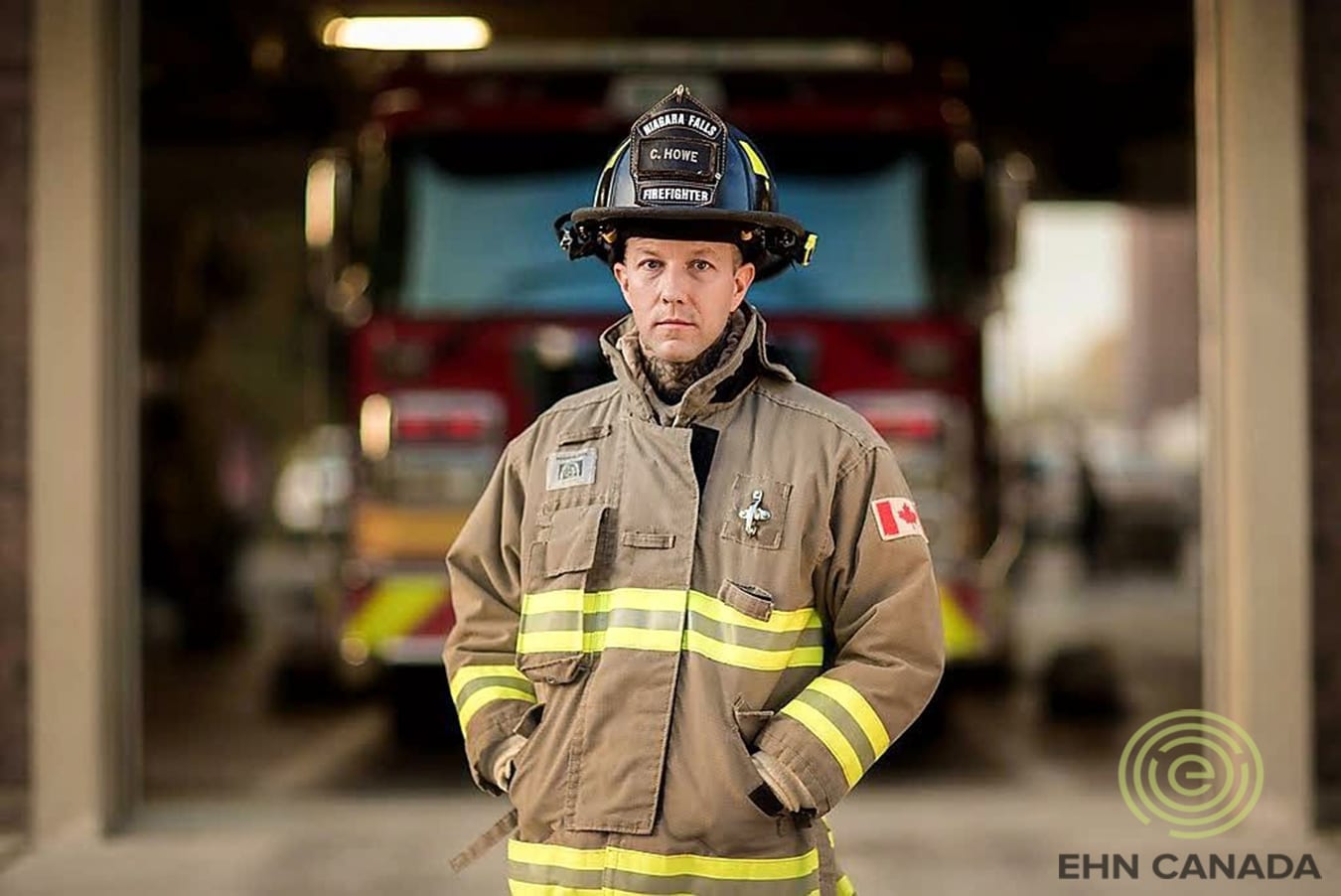Chris Howe is a recovery partner with EHN Canada, he shares his story with us about dealing with stigma in the workplace as a first responder.
“If I can give you one piece of advice for your career… It’s never show your weakness! We prey on our weak around here!” These are the first words I heard from a senior firefighter on day one of my career with the fire department. More terrifying words have never been spoken to me. I had plenty of weaknesses and secrets. The stigma around asking for help, being vulnerable and admitting I may have a problem held me back for many years. I work in a fairly male-dominated environment where the majority tends to be alpha. I learned, through listening to round table discussion that if I showed the pain I was truly in, I would be viewed as weak and incapable. I carried this through the first seven years of my career. Trying to hide the fact that I was an alcoholic and drug addict who suffers from subsequent mental illness became a full time struggle. I wanted to show the rest of my co-workers that I was just a heavy drinker, not an alcoholic.
For some reason, the heavy drinker is revered and the alcoholic is looked down on. I couldn’t keep the facade up for very long. For fear of rejection and exclusion, I began to craft a web of lies and excuses as to why I may be missing work, showing up late, not showing up at all or showing up unfit for duty. The guilt, shame and remorse of what I had been doing on my days off and time away from work was unbearable. I needed help! I could not adjust my habits or change my lifestyle on my own. Yet, I had no one to share this with. I was terrified and floored by the idea of showing vulnerability which would be viewed as weakness. I had no idea how I would be treated at work if I admitted a deficiency. I thought no one would trust me. I thought no one would respect me. I thought no one would like me. I had no idea that was already the case.
After having my world cave in on me on several different occasions and, I finally had hit rock bottom and felt it was a life-or-death moment for me. I finally asked for help. With hesitation and humiliation, I broke down and cried in front of another man and begged for help finding recovery and a better life. To my absolute astonishment, that was the hardest thing I had ever done, but the last thing I ever had to do alone.
With the help of the members of a recovery program, counseling through EAP services, psychologist, doctors, family, friends and most importantly coworkers… I was able to completely change my life. In recovery, I found great relief. I found that once I showed some humility and asked for help, it was there in abundance. Coworkers become friends, they showed me love, respect, patience and support. My peers and superiors began viewing me as a different person. Someone who deserves the position and someone who can be trusted. Today I realize that showing my vulnerabilities and deficiencies was truly the turning point and these deficiencies became my greatest assets. There is no shame in admitting my faults. There is no guilt in showing the world my true self. My journey in recovery is the most precious thing in my life. Everyday I tried to do my part in breaking the stigma around asking for help and showing your vulnerabilities. No one should have to suffer in silence.



